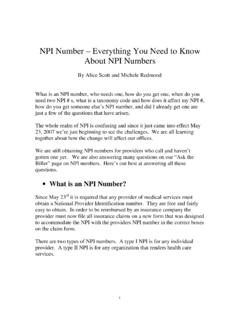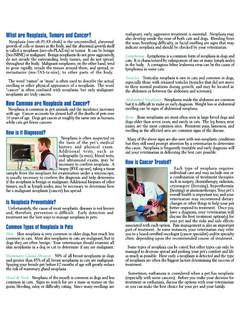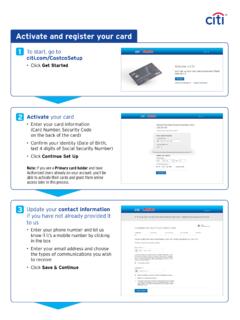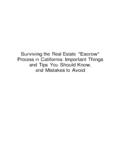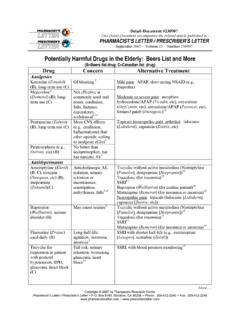Transcription of Know Your Rights ANSWERING QUESTIONS FROM …
1 Employment and Housing Rights for Survivors of Abuse is a project of Legal Momentum. know Your Rights ANSWERING QUESTIONS FROM EMPLOYERS ABOUT CRIMINAL RECORDS OR ARRESTS 395 Hudson Street New York, NY 10014-3684 t: f: It is not unusual for victims of domestic violence, sexual assault, or stalking to have been arrested for or convicted of crimes related to the violence. Additionally, proceedings related to protective orders can sometimes appear on criminal background checks, even if the protective order was issued on your behalf against your abuser or the perpetrator of an assault.
2 When you are looking for a job, you may be asked about your arrest record or your criminal record. This guide answers some common QUESTIONS about laws that can protect you against discrimination and afford you privacy. 1. Is there a difference between arrests and convictions? Yes. Arrest - An arrest means only that you were taken into police custody and temporarily held by the police. An arrest is not a finding that you are guilty of a crime or that you have done anything wrong at all. After you are arrested, the prosecutor decides whether to charge you with a crime. You may never be charged with a crime.
3 You may be charged but the charges may later be dropped or dismissed. Finally, you may be charged, go to trial and be acquitted (found not guilty ). In all of these situations, you have been arrested but not convicted. You are not guilty of a crime. Conviction - A conviction means that you have been found guilty of a crime by a court or that you have agreed to plead guilty to a crime. There are many levels of crimes, including both misdemeanors and felonies. If you are found guilty of, or plead guilty to, any level of crime, you are generally considered to have a conviction. You may have been convicted of a crime even if you did not spend any time in jail.
4 If you paid a fine, were put on probation, did community service, or received a conditional or unconditional discharge in connection with a crime, you may still have a conviction record. There are some states where low-level offenses such as violations are not technically criminal convictions. If this could apply to you, you should learn what the relevant law in your state is. 2. What should I do if a potential employer asks about my arrest record on a job application or in an interview? The answer to this question depends on where you live. In some states, it is illegal for potential employers to ask about or consider arrests that did not lead to convictions.
5 As of January 2005, the states that make it illegal are: California, Hawaii, Illinois, Massachusetts, Michigan, New York, Ohio, Rhode Island, Utah, and Wisconsin. All other states allow most or all potential employers to ask about arrests as well as convictions. (This question may be asked in many different ways. For Much of the information on this guide came from guides prepared by the Legal Action Center (LAC), an organization that advocates on behalf of people with criminal records. For more information on LAC, visit its website at LAC tracks relevant state laws on its website at ANSWERING QUESTIONS from Employers About Criminal Arrests and Convictions 2 example, an employer may ask whether you have ever been charged with a crime this is essentially another way of asking whether you have ever been arrested).
6 States that do not have a law - If you live in a state that does not have a law that prohibits potential employers from asking about arrests, you must answer any QUESTIONS you are asked about arrests truthfully. You might think it would be helpful to lie about your arrest record, but this is not a good idea. Obviously, lying is unethical. Also, if you lie on a job application or in an interview and the employer finds out, the employer is legally entitled to refuse to hire you. If you have already been hired, the employer may fire you because of the lie. This is true even if you have been a good employee in all other respects.
7 Many employers now do criminal background checks on potential employees (see question #6, below), so it is likely that the employer will find out about the arrest. States that do have a law - If you live in a state that does have a law that prohibits employers from asking QUESTIONS about arrests that did not lead to convictions, you should not be asked whether you have ever been arrested. However, some employers may ask you this anyway. The employer may not know that this is an illegal question. This can put an applicant in an uncomfortable position. You can refuse to answer the question, but this may make it unlikely that you will get the job.
8 Some advocates suggest that if you decide to answer the question, you can lawfully leave out any arrests that did not lead to convictions. You may wish to consult with an attorney about how to handle this situation. You may also wish to get a copy of your Rap sheet to make sure that it is accurate and includes all relevant information (such as that charges were dropped). (See Question #7 below.) 3. What should I do if a potential employer asks about my conviction record on an application or in an interview? You should answer QUESTIONS about convictions truthfully but make sure to answer the specific question asked.
9 Is the question: Have you ever been convicted of a crime? Have you been convicted of a crime in the past seven years? Have you ever been convicted of a felony? To prepare for such QUESTIONS , before you begin the job application process you should make sure that you understand exactly what your criminal record is (for example, is a conviction a misdemeanor or a felony?). If you are asked about convictions, you do not need to disclose any arrests that did not lead to a conviction. You might think it would be helpful to lie about your conviction record, but this is not a good idea. Obviously, lying is unethical.
10 Additionally, if you lie on a job application or in an interview and the employer finds out, the employer is legally entitled to refuse to hire you. If you have already been hired, the employer may fire you because of the lie. This is true even if you have been a good employee in all other respects. Also, many employers now do criminal background checks on potential employees (see Question #6, below), so it is likely that the employer will find out about the conviction anyway. 4. Should I tell a potential employer that my arrest or conviction is related to my being a victim of domestic or sexual violence?


